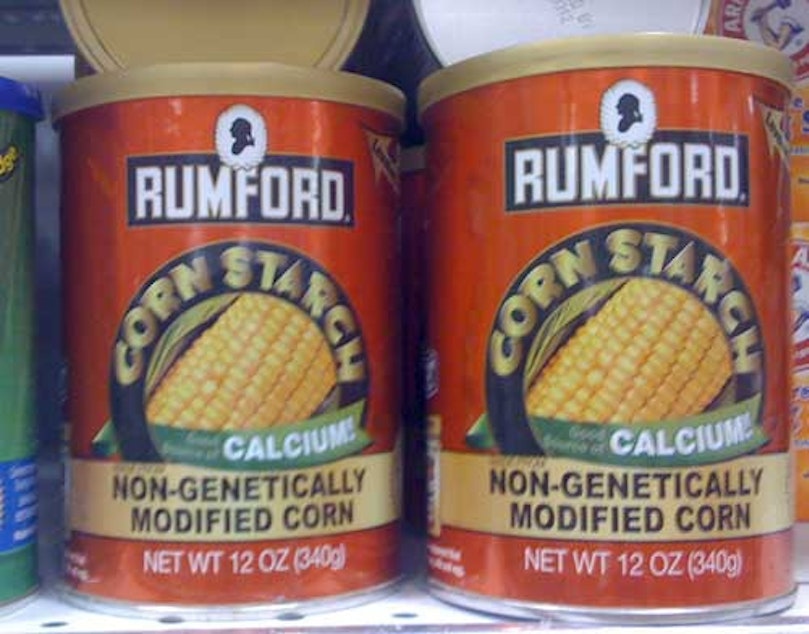Effort To Label GMO Foods Failing In Washington State

Washington state likely won’t be labeling its food containing GMO products, after all. With most of the votes counted on Tuesday night, 55 percent said no to Initiative 522, which would have required labeling.
Both sides fought hard until the end, with those opposed to the initiative – led by the Grocery Manufacturers Association and agrochemical company Monsanto – breaking a state record by raising than $22 million. Other top donors included Nestle, Pepsi and Coke.
It’s hard to avoid genetically modified foods in the US. More than 70 percent of our processed foods use genetically engineered ingredients like soy, corn and sugar beets.
California voters turned down a similar initiative in 2012. But the Connecticut Legislature made history in June when it passed legislation to require labeling of GMO foods. It was the first state in the country to pass a comprehensive labeling law.
“We’re not talking about banning GMO foods as many countries in Europe have done,” Connecticut State Senate President Donald Williams said. “We’re just simply talking about being transparent and letting consumers know what’s in the food that they eat.”
Sponsored
Connecticut’s labeling law won’t take effect until other New England states pass similar labeling requirements. Williams said the provision ensures that no one state is at a competitive disadvantage. So far, Maine has followed suit with its own labeling law. To date, at least 20 other states are considering similar bills, an indication of consumers’ growing attention to what’s in their food.


